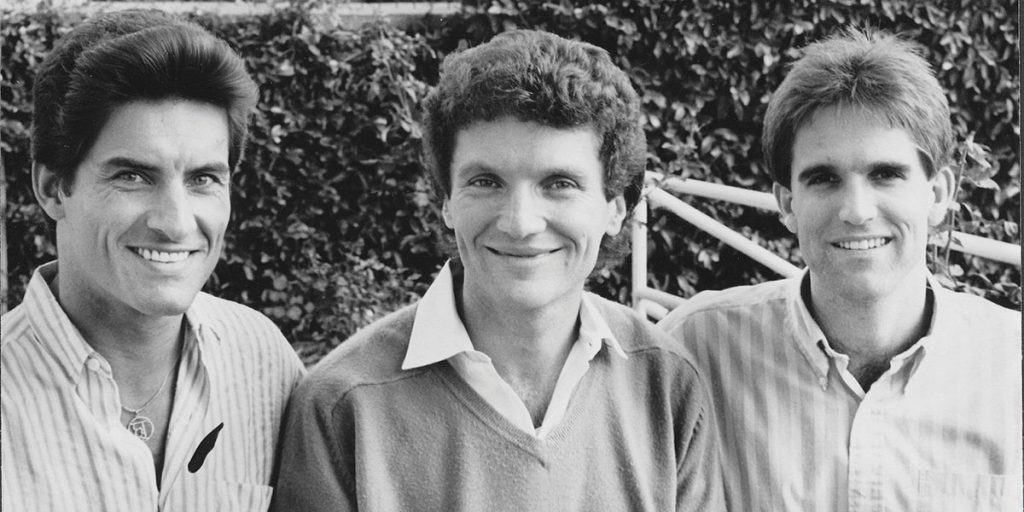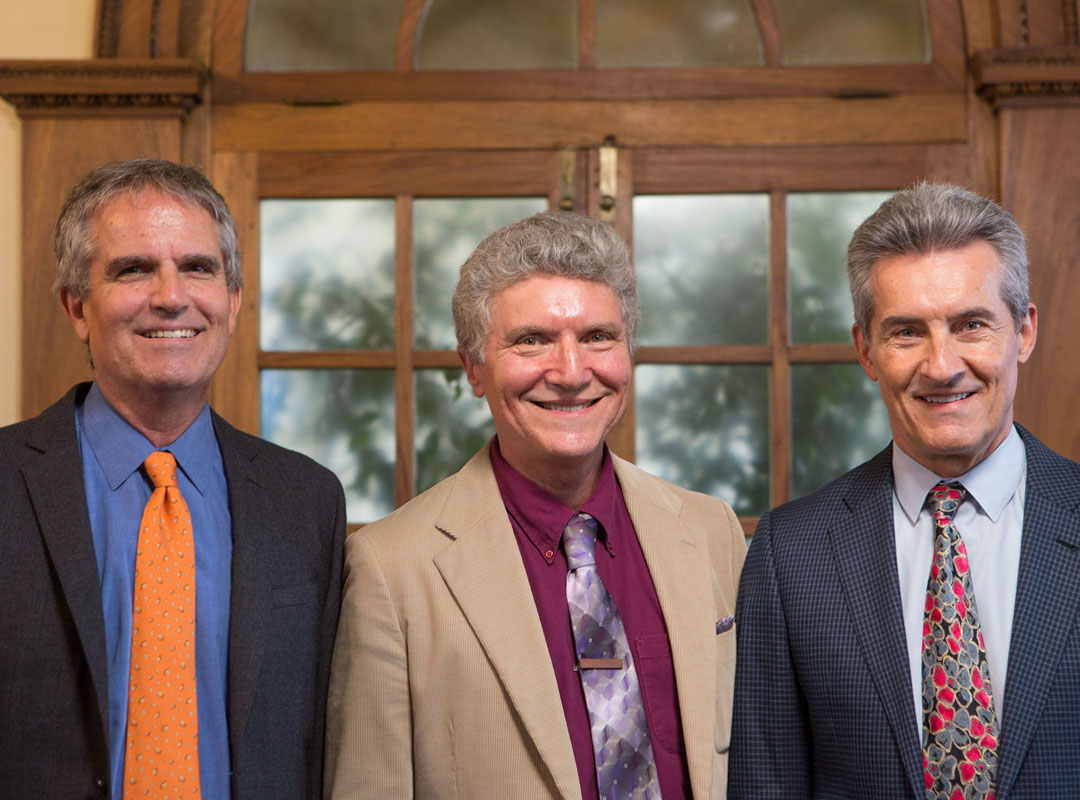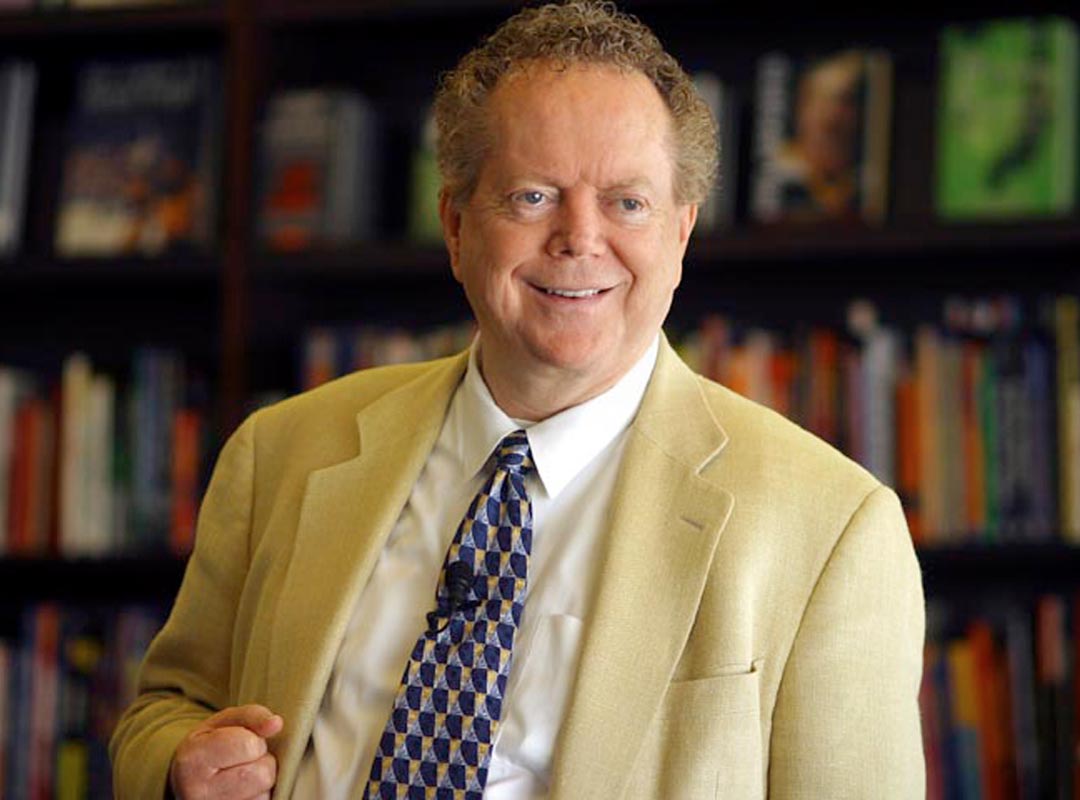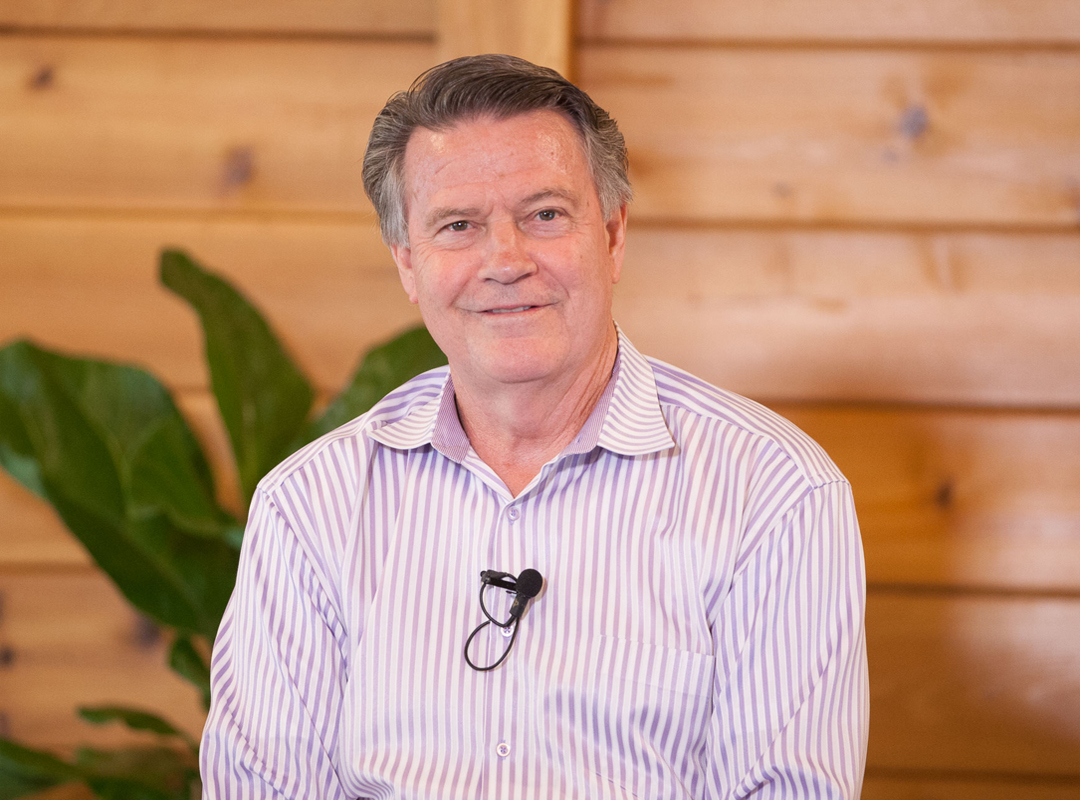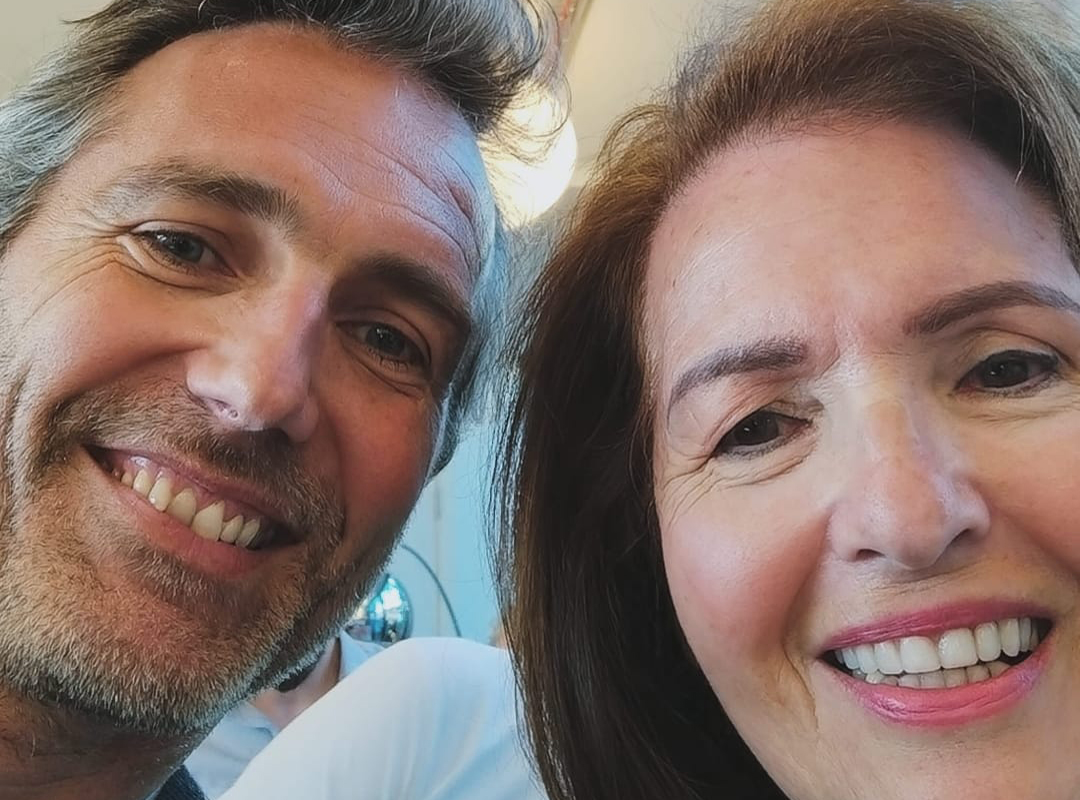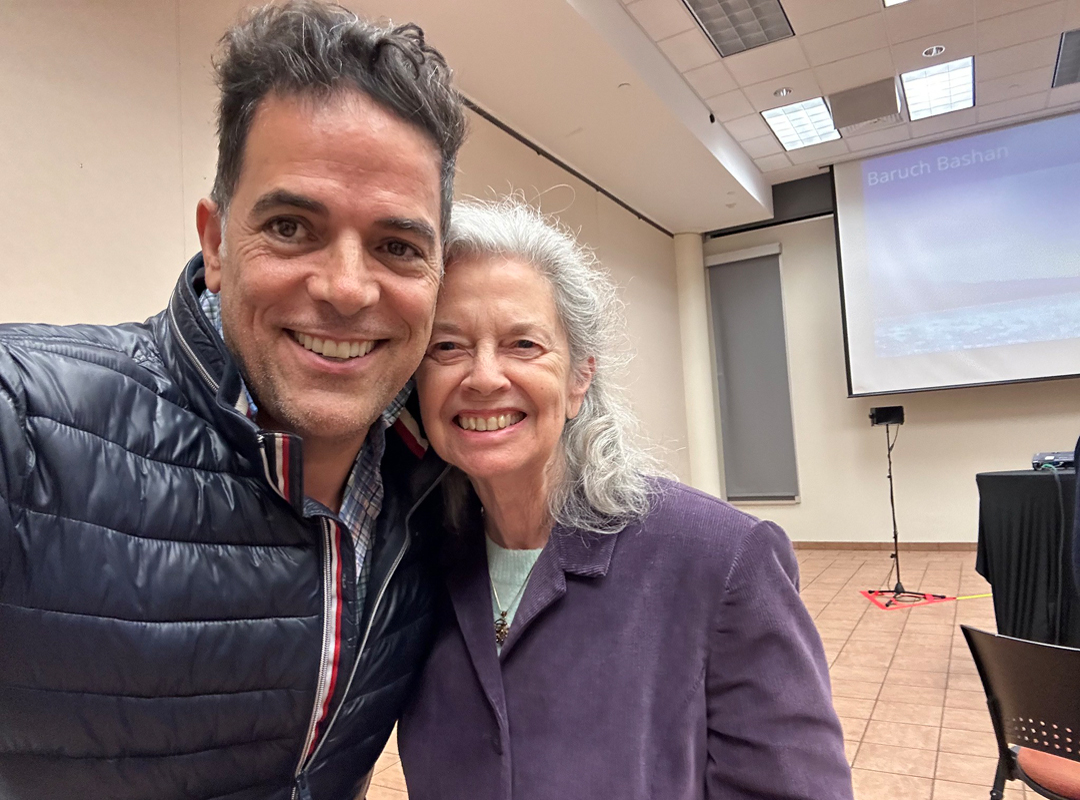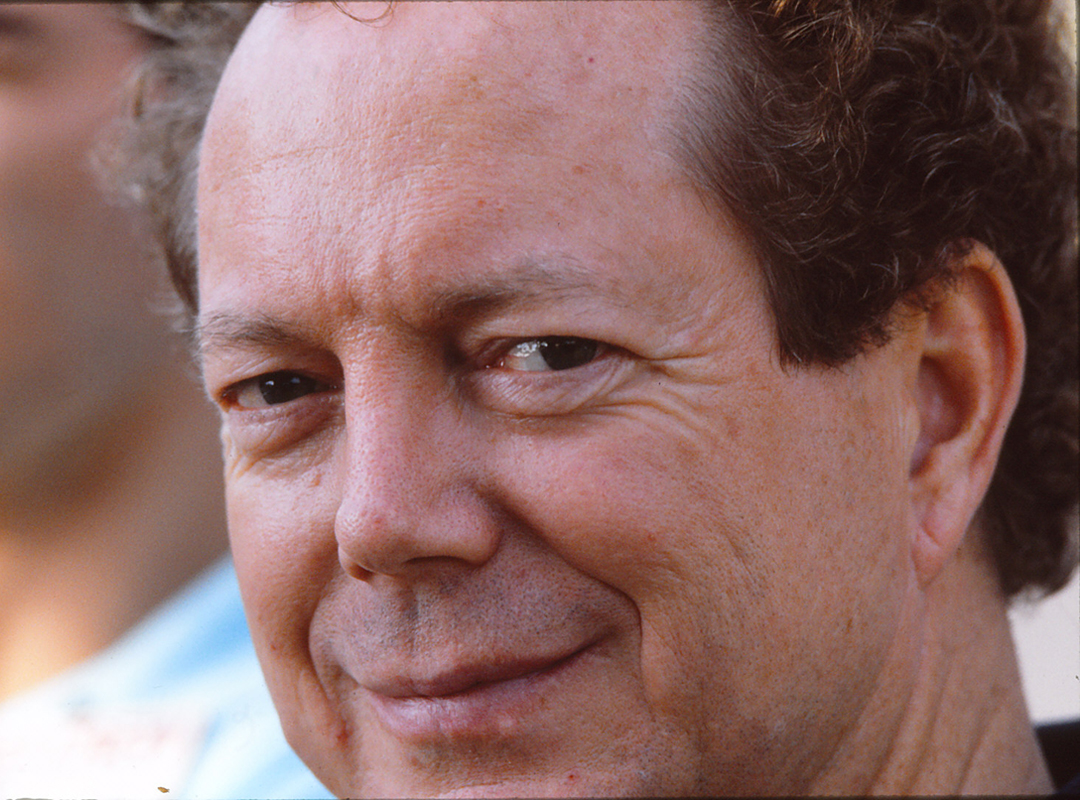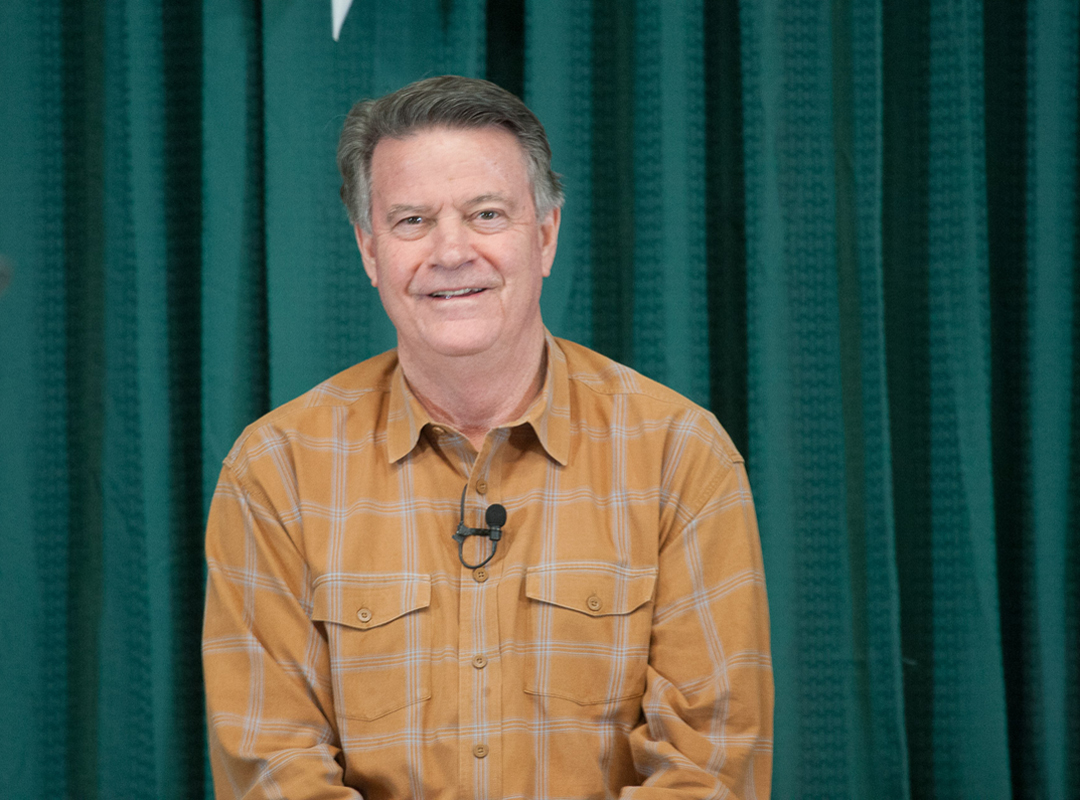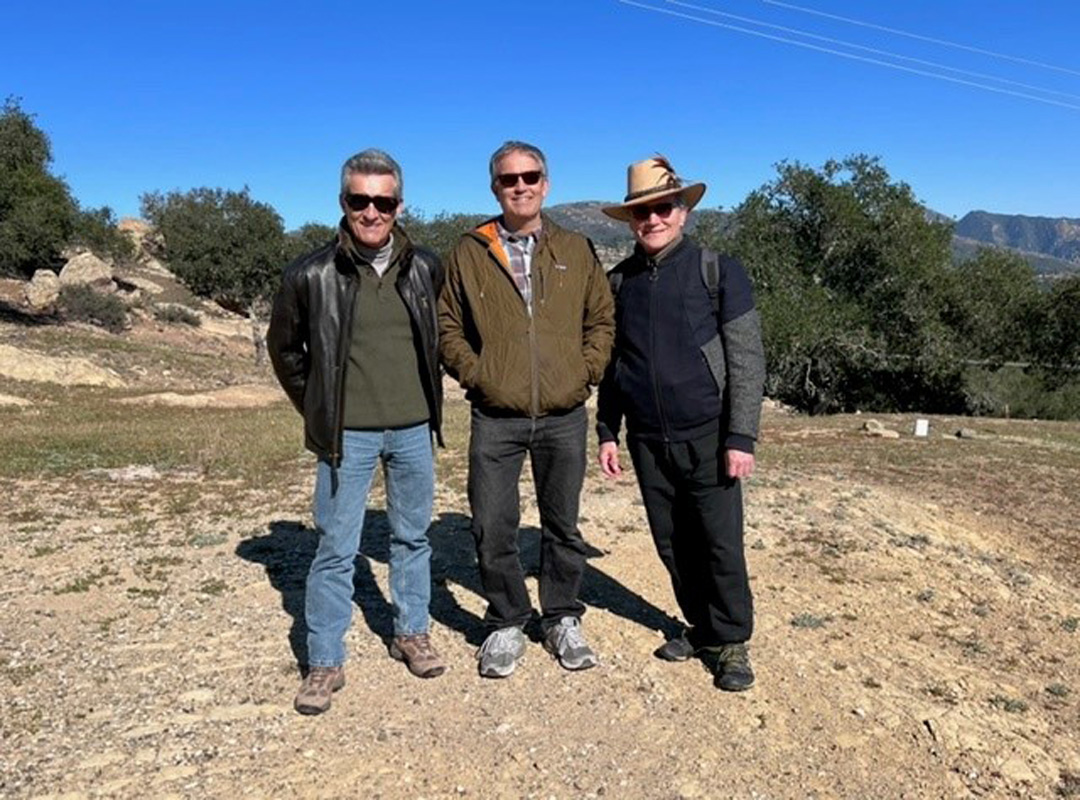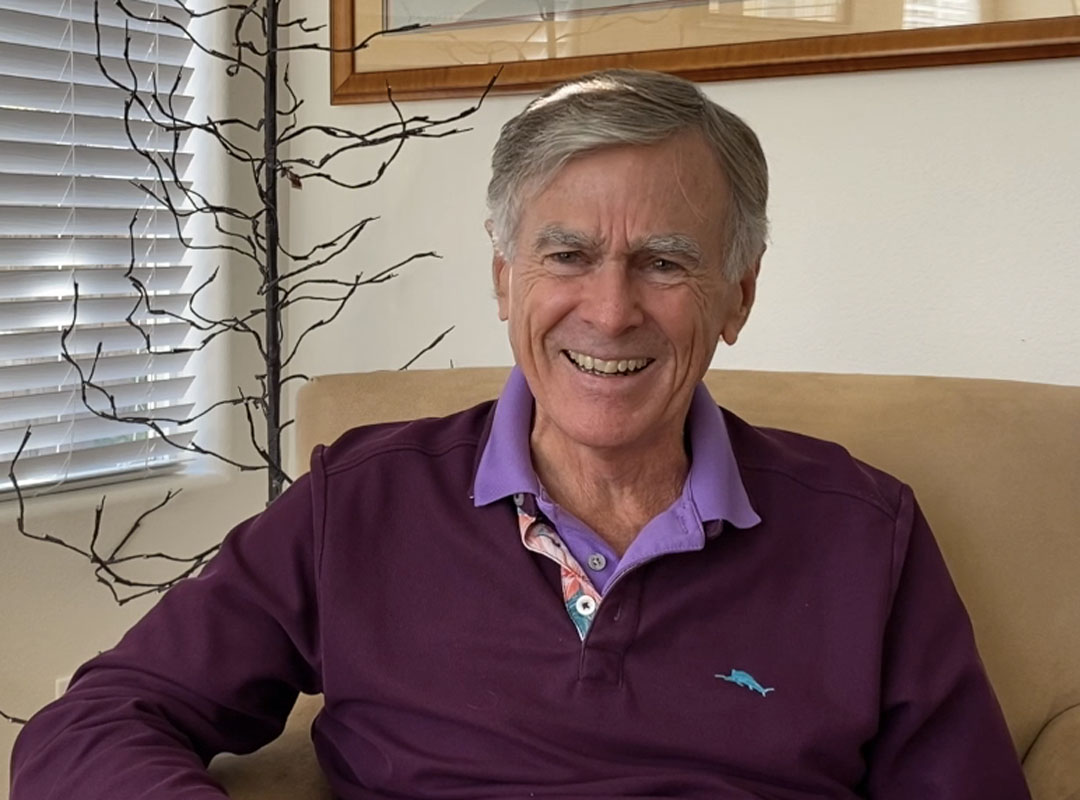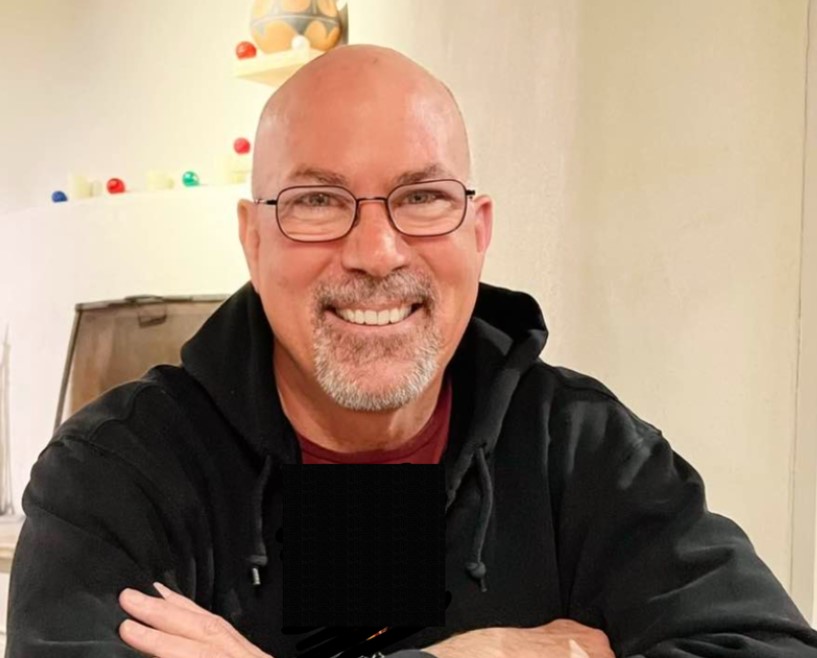The MSIA Presidency, left to right: Vincent Dupont, Paul Kaye, Mark Lurie.
Part One of a Three-Part Interview in the New Day Herald (NDH) with MSIA’s Presidency: Paul Kaye (PK), Vincent Dupont (VD) and Mark Lurie (ML).
NDH: How would you describe MSIA’s mission, and in particular, your job as the Presidency?
VD: J-R made it very simple for us. He said in 1989 that the only business of MSIA is Soul Transcendence, to transcend into the heart of God; and our mission is to make the Traveler’s teachings available to those who are looking for them. And our work is to serve and to love our neighbor as ourself. We couldn’t have asked for a better, clearer direction, mission, and purpose. To this day I have it sitting on my desk and I read it to keep me on track.
PK: The MSIA staff all had a meeting with J-R several years ago where he gave us a “Johnny Appleseed” analogy. Johnny Appleseed, as it turns out, was actually a real person who planted seeds for apple trees wherever he went. What was interesting about him was that he never stuck around to see if they grew. He just planted the seeds and moved on. And we’ve used that analogy ever since as a Presidency because we don’t necessarily analyze every avenue we go down to see if it’s going to work. But let’s say someone has the idea for getting MSIA on Facebook, or putting an ad in Yoga Journal. For us, it’s just another seeding opportunity. It’s never about how many hundreds of people came to an event. But that one person who is looking for the Light, or the Traveler, or the teachings of Soul Transcendence, sees that ad or website, and suddenly, boom, they’re on their way home. I think that’s what matters more than anything. So it’s nowhere close to being like any regular business model that you would find in the world.
VD: I think over the years it’s also developed into preserving the teachings. We’ve invested a lot of resources and thoughtfulness into how we want to go about that and what form it takes. And along with that goes the need to have the financial resources to keep making the teachings available and preserving them for future generations. So I think a big part of our job also is being good stewards of MSIA’s resources and of what J-R has created, and doing it in a way that reflects very directly what J-R has taught us. We’ve all basically been groomed, I would say, directly by J-R, and instilled with the values we’ve needed to do our jobs. And even though Mark, Paul and I come from very different backgrounds, we’re lined up in those basic human values.
NDH: And how do you divide the jobs? Does one of you focus more on one thing than another?
PK: The three of us make many small administrative decisions during the course of a day. Because we meet frequently one person’s response will generally speak for all three of us. We have developed our individual areas of focus over several years. Mark has got several hats. He’s the manager of the computer department, and also the manager of the accounting department, the church properties and assets. He’s the secretary of the church, and he oversees the legal area. Vincent is much more about travel, publications and making the teachings available through the many outlets we have these days–print and Internet, and social networking. I am more involved with personnel and of course my most important role is Lord Tithington. When I came to Prana, my first title was “coordinating auditor,” then I became treasurer and did accounting. Actually, Mark was my volunteer in the accounting department and then got his accounting degree and eventually took over that whole department. Interestingly, I have roomed with both Mark and Vincent when we all lived at Prana. So we know each other’s foibles quite well.
NDH: The numbers of discourse subscribers, or “members” in MSIA has pretty much stayed the same over the years. How do you feel about that? Do you ever wonder if there’s something more you can do?
PK: Actually, MSIA has just three members, and that’s us. We’re also the directors of MSIA and we’re the three officers of MSIA.
ML: If you were a member of the Fifth Baptist Church in Augusta, you literally would have to be voted in. You couldn’t just walk in the door and become a member. When we talk about active Discourse subscribers people sometimes refer to them as members, but J-R has made a point over the years to say that legally MSIA only has three members. And I think part of that has to do with churches out there that have a congregation or membership that guides the church and sometimes can create chaos and conflict because you can have different groups that develop and compete. In our case it’s very simple. We have three members. We run the organization administratively.
VD: My understanding is that Protestant churches, in the U.S. primarily, are what might be called congregation-based churches, meaning the congregation has a lot of say in how the church is run, and who their pastor or minister is. I think to some extent they can even elect the pastor to varying degrees depending on their denominations. J-R has made very clear to us that MSIA is not a congregation-based church. It’s what he has called a theocratic church, “theos” meaning God in Greek. It’s a church that takes its direction directly from God through the Christ and the Traveler. And as such the “membership” is more like students and participants than people who are involved with the direction of the church.
ML: So as the Presidency, we’re the stewards or administrators, and we look to John-Roger and John Morton for the spiritual direction. When it comes to how we’re going to handle a basic business issue most of the time we just handle that. If it’s remotely a spiritual direction then we’ll ask for guidance.
VD: And if it’s anything that we are not clear on, or a situation where we would do it if it were a spiritual directive but we wouldn’t spend the money if it’s just a physical-level thing, we’ll go for spiritual direction. We’ll ask ourselves, “Is this a spiritually driven project?” And if yes, then of course we put the resources behind it, and if it’s just a physical-level thing, then it comes back to us as what J-R calls an administrative decision, and then we’ll just decide the issue on its own merit.
PK: So I would say that as members our job is to “seed the teachings,” as directors it is to “preserve the teachings” and as officers it’s the legal and financial stewardship of the church as a corporate entity in the world. So maybe there’s three levels to our job.
As far as the number of discourse subscribers, in the U.S. it has remained pretty constant. In South America it had dropped but has now stabilized. And Africa, Nigeria primarily, had also dropped out because we stopped giving them discourses for free. Now that currency restrictions have been made easier, they have been paying and it has been going back up.
VD: When I came in over thirty years ago there were about 1,000 people on Discourses and then in the course of the 1980’s it went all the way up to about 5,000 and it’s gone down to around 4,200 since then. And as Paul was saying it’s gone up in areas and down in others.
NDH: I know I’ve gone through different things with that, sometimes thinking it should be different from the way it is, sometimes wanting to increase the numbers. Personally I’ve found my viewpoint is just coming from whatever agenda I have inside me, and if I come from a place of no agenda then I’m fine with it.
ML: The really reassuring thing for us is that J-R laid it all out: make the teachings available for those who are looking for them. It goes back to the Johnny Appleseed idea. We don’t do what people would call professional marketing. We try to avoid hype. We don’t want to enter into the world’s way of marketing. But if we are putting out the teachings in as many ways as we can so that people can find them, we feel like we’re doing our job whether 200 people are in the movement or 10,000. That’s what we look to more than anything else. I would be more concerned if we weren’t putting the teachings out than I would if the numbers of active Discourse subscribers dropped.
PK: Number one, J-R has never, ever given us a goal or told us we need to get more people on discourses. He’s been very much into taking care of people who are on discourses but he hasn’t expressed a need to go out and get them. There’s an anecdote which sums it all up for me.
About eight to ten years ago I co-authored a book with J-R called, Momentum, Letting Love Lead. I then developed the Momentum five day workshop which I thought would be great for newcomers to MSIA. I facilitated it all the over the world and in Colombia, did a Momentum workshop there for about 180 people. At the end of it 32 signed up for discourses for the first time. When I went back to Colombia the following year someone mentioned in passing that out of all the people that signed up for Discourses at that workshop not a single person renewed. And I think I was in shock for several days because they were getting the energy and teachings in great depth but not one continued on discourses. After that I said, “Listen, this is so outside of my hands”—and my ego kind of died that day. I backed off on that “it’s about numbers” stuff. Yes we can get people on Discourses but whether they really care or whether they’re connected is truly a matter for the Spirit.
Another anecdote: I remember about 20 years ago we were planning a trip to Nigeria and we were talking about whether to go to Port Harcourt in addition to Lagos, and J-R suggested to just be in Lagos. I remember saying to him, “But J-R there are 200 people on Discourses in Port Harcourt!” And he said, “Just because there are 200 people on Discourses doesn’t mean they’re doing Soul Transcendence.” Sure enough the interest in MSIA in Port Harcourt dwindled soon after until it was left to this day with a very small but dedicated group. And of course when I had the Colombian experience it all made sense to me. So even if we had 100,000 people on Discourses it wouldn’t mean they’re doing Soul Transcendence—and MSIA’s business is Soul Transcendence.
VD: A classic example, I was laughing so hard…everything went wrong at a seminar Friday night…
ML: Yeah, last Friday night there was a seminar and the video didn’t work, and this woman came with a friend and really was touched by the Light, and then she came back on Monday and signed up for Discourses and then she went to Sacred Tones and the tape didn’t work—and she still totally loved it! It was great.
PK: Mark was reading the meditation from the “Inner Worlds of Meditation” book because the CD player broke down and she was loving it.
VD: So basically if that person is to work with the Traveler, you can’t keep them away.
NDH: On a similar theme, you’ve got the aging of the MSIA population.
PK: That definitely stands out looking forward and we’ve been actively in dialog with the millennial generation (those born after 1980) to see what we can do to make the teachings more accessible and available to them. We certainly are focused on keeping up with current technology, it’s irrefutable that MSIA is getting older, and that is something we’re having to deal with.
ML: We looked at our demographics a year or two ago and our average age in MSIA was about 50 to 59. The shocking thing was that the number of people under 40 was a handful, less than 200. That was a real eye-opener for us. We purchased the apartment complex next door to Prana, it has about 85 units. The funny thing is we bought it as an investment, with the idea that it’s right next door to Prana, and we could potentially develop the property someday. But when we mentioned the purchase in the Los Angeles ministers’ meeting the response was huge, thunderous applause and people all coming up to us independently saying, “Is this the MSIA retirement home?” It certainly gave us pause and made us realize there was something in the air out there.
PK: It’s like navigating at sea. You can see that there’s a storm brewing so you make adjustments and stay very aware and watchful. An aging population means, statistically, that there will be more people getting sick. In the last two weeks we had three people die in MSIA that were in their 50’s. In addition, there are going to be people retiring, not being able to work, on Social Security, and all of that will impact us down the road, and we have to be prepared for that on a financial level.
NDH: And that’s because of less tithing?
PK: In the long term, yes. In the short term it may actually mean more tithing. The silver lining, so to speak, is in service. Service is going to be the only game in town. We will all be serving someone. However, when you come back to the “only business of MSIA is Soul transcendence” it puts everything back in perspective.
NDH: So does MSIA work like a university that has an endowment or are you pretty much dependent on tithing for day-to-day operations?
ML: A little bit of both, but tithing is our biggest source of income. Tithing and seeding. That wasn’t the case when I first came on staff in 1982. Tithing was almost non-existent. But in 1982 when I came in, the staff was like four or five people and now, including part-timers, it is well over 70. So things have shifted a lot. MSIA has no debt and it is financially well off. We’ve tried to be good stewards and conscious of costs. With that said, we’ve definitely looked to the future and tried to anticipate what the revenue flows are going to be and keep our investments focused to produce income and support us to move forward. Even if MSIA dwindles down to a hundred people, we want to preserve J-R’s teachings for the future. That’s one of our biggest mandates.
PK: We also don’t want to burden the MSIA community with financial problems, and that’s why we want everything to be self-supporting. By not being in debt we’re not saying, “Oh my God, if we don’t meet this…” and thereby subtly manipulating the community to get money.
I am glad to say everything is very free-flowing. Tithing is elective–it’s a free choice, unless you are taking the DSS class where it is necessary for participation. Discourses even for $100 can’t possibly cover the costs for preserving the teachings and putting them out and remastering the tapes and everything that goes into it. A lot of the costs are completely behind the scenes. For example, we have a new database through which NOW Productions can track every single tape or CD involving J-R and John’s teachings over the years.
ML: That equates to over 50,000 pieces of media. Each one has a bar code, is tracked. There is data that corresponds with that, that is in a database with all the information.
PK: It just goes on and on and gets exponential, and things have to be updated, recorded and archived, stored and all of that—digitized and remastered as well—so that when a person’s listening to that SAT tape, they’re listening to something very pure and pristine from the 1970’s, and it really sounds pretty incredible in 2009. That just takes a lot of skill to produce, and people don’t necessarily appreciate what it takes. Now in particular people are saying, “Well if it’s on MP3, why should I have to pay for the SAT CDs? It’s not costing you anything.” And I think, “What? It doesn’t cost anything?”
So there are headwinds that we’re facing. And at any point there could be an influx of new students of the teachings. It may be that people who at an average age of twenty-five weren’t really interested in MSIA but when they reach thirty-five suddenly it sparks. And then we have a whole new influx of people that are dedicated, that are grown up and matured and ready for this. So there are lots of different things that can happen along the way.
NDH: When you say you’ve talked to Millennials, what kind of things did you hear? What kinds of conclusions did you come to?
PK: The Millennial generation seem to have come in very spiritually attuned so they are not searching for it as the baby boomers were. There’s is more a mix-and-match spirituality where people can go on the Internet and find a wide range of approaches that they can customize to their own needs. In Europe where there’s a kind of an anti-spirituality or anti-religion approach. The millennials are looking for community and connection. The path really of Soul Transcendence is you and God, you and the Traveler. Although we come together sometimes as a community we’re not community-based. And a lot of times the millenials are looking for that community approach. So we are working to find the balance for them.
NDH: The way it’s always looked to me is that a certain generation has sort of grown up with J-R and we’ve had the benefit of being with him for 20, 30, 40 years, and in that longer time period he can do his most effective work with a person. So it may be just perfect and it’s meant to be that way. People have come into incarnation at a particular time just to have that exposure to the energy for a longer period.
ML: I would agree with you, and that’s why our job is just to manage what’s present. If things dwindle down, then we’ll ratchet down MSIA to match them. If a lot of new people start coming in, we’ll rise to meet that. Our job is just to anticipate and to hold the focus, and rock and roll.
VD: And even in our own lifetime cycle, and when we came on board with J-R, we were young and idealistic and we were going to change the world. It was like, “Wow this guy’s got it!” And then Insight came along and we were really going to change the world. And then little by little we got more into the depth of the teachings and what J-R was actually saying. Soul Transcendence really is not about changing the world. And it’s been an adjustment to come to that place, even in terms of how we conduct business, where the focus becomes less about trying to change things out there, but more in terms of preserving the teachings and having a solid foundation so that regardless of what happens out there, this body of wisdom is available to future generations.
And we have a luxury that wasn’t around in the time of Christ 2000 years ago, which is to have J-R’s voice, J-R’s image. You can hear the tone of his voice, and how he said it and the context of how he said it, which wasn’t available back then. So it becomes a very different focus. Because, as you know, J-R says this world is a perfect place—like it or not, it is perfect here. And it’s the perfect classroom. We’re not here to re-design God’s classroom, because it’s doing its job perfectly. All we have to do is help hold the loving focus, and in this case to preserve the body of J-R’s teachings so people can navigate their way through this perfect classroom.
End of Part 1. Click here for Part 2.







